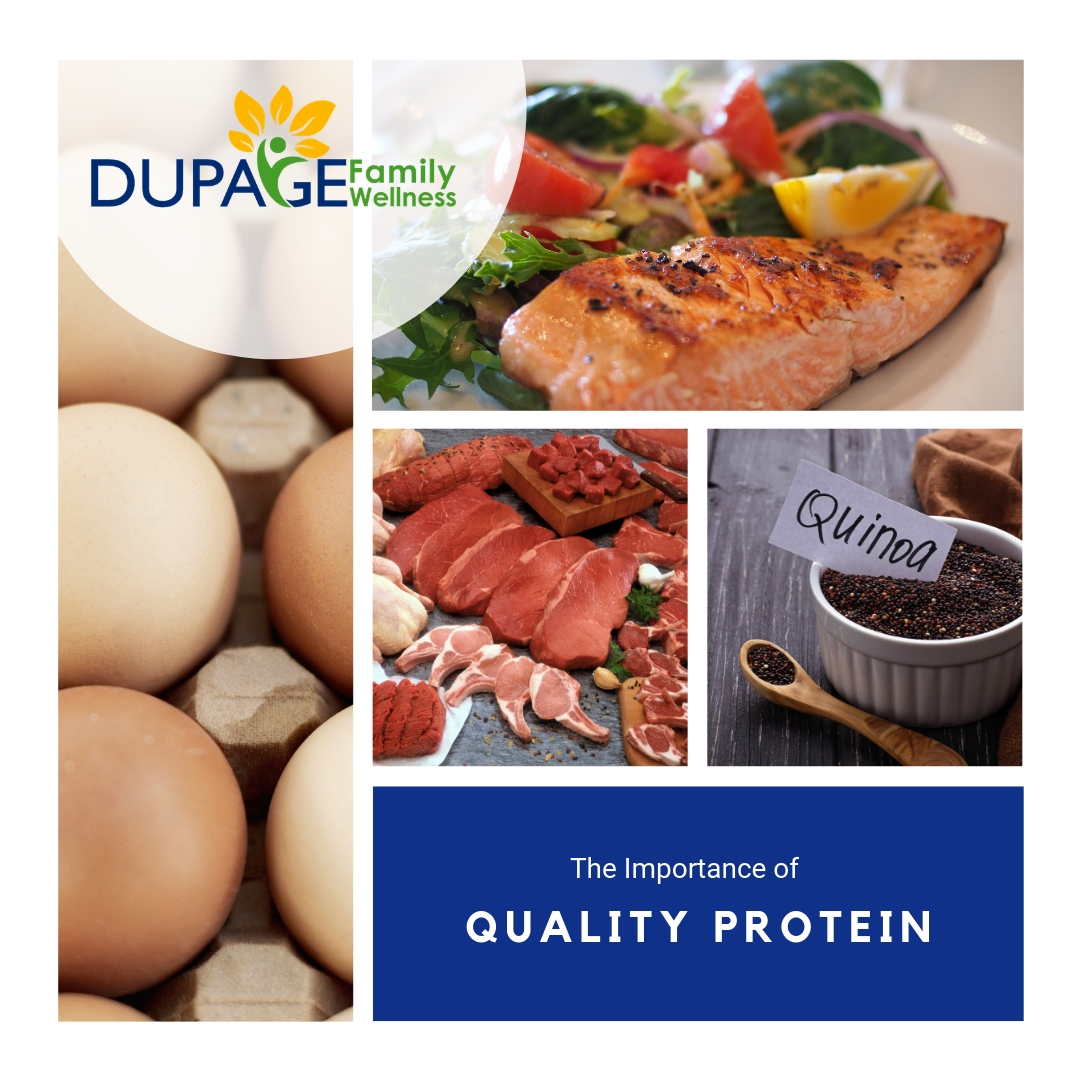
Every cell in your body contains protein! Since your body does not store this essential macronutrient, it depends on your diet to provide adequate amounts. It is important to provide this as protein contains amino acids that are the building blocks used to repair and replenish all the tissues in the body!
According to livestrong.com, protein helps “build muscles, produce new cells, regulate hormones and enzymes, heal wounds and promote immune function”. It is considered the most important macronutrient in building muscle, which can elevate your metabolic rate. Since protein also helps you feel full longer, it is great for those wanting to lose weight.
Quality Proteins
Quality is the most important thing to remember when it comes to protein. The protein should be a complete protein, which contains all the amino acids. It also needs to be easily digestible, free from both preservatives and additives.
The easiest way to get complete, digestible protein is by consuming animal products obtained from a trusted source. While plants contain many necessary nutrients, they are not considered a complete protein. It is possible to get the nutrients you need without eating meat, but it takes care to make sure you are getting everything you need. Combining foods in the right way can provide all the amino acids your body needs.
Animal Protein
Meat can be a wonderful source of protein, but it is important to make sure you are getting quality meat! How the animal was raised, and what the animal did while it was alive, is extremely important. It is not just in the animals best interest to be grass-fed or free-range, it has a direct impact on your health as well.
A study done by Mother Earth News compared eggs from free-range chickens with those produced commercially. It found that free range eggs had:
- 2/3 more Vitamin A
- 2x more Omega-3
- 3x more Vitamin E
- 7x more Beta Carotene
In addition, grass fed beef also has been found to contain higher levels of vitamins, antioxidants, and anti-inflammatory Omega 3 fatty acids when compared to conventional beef.
Vegan and Vegetarians
If you are not consuming meat, it is important to include other quality proteins in your diet.
- Whole, organic, Non-GMO soy products such as tofu can be an acceptable protein. (Please do NOT rely on products containing soy protein isolates or concentrates which are often found in soy burgers, meatless chicken, as well as protein bars.)
- Nuts & seeds can be a good source of both protein and fat.
- Eggs are another great source of protein and fat. (Obviously not intended for vegans.)
- Beans & lentils are good sources of protein that is high in fiber. (If your body tolerates them well.)
- Some plant-based protein shakes may be useful if you are struggling to get enough protein in your diet, but check the ingredient list carefully! (My go to proteins in this category are hemp, pea, rice, or whey.)
- Quinoa is a higher protein grain that many may tolerate. (There can be cross contamination issues with gluten.)
This Vegetarian and Vegan Guide was created by Mark Hyman, M.D. It is a great resource for vegan and vegetarians trying to eat healthy.
How to Buy Quality Protein
Company’s spend lots of money each year on marketing their products. The terms used can often be confusing for consumers. The following chart can help you decipher these terms, so you know what to look for when you shop.
*For more about these terms check out our Protein Guide.
Amount of Protein
Ideally people would consume one serving of protein with each meal (one serving of protein is roughly the size of the palm of your hand or a deck of cards). However, each person’s body and activity level is different, so protein needs will vary.
While many people thrive on a higher protein diet, some may find they do better with small amount. Listen to your body! It is the best indicator of how much protein is right for you. If you don’t eat much protein, consider adding some to see how it makes you feel. If you do eat a lot of protein, does it set well with you?
Quality protein is important for everyone. Finding nutrient-dense, quality protein is especially important for those who eating smaller amounts of protein. Organ meats and shellfish are great examples of nutrient-dense, complete proteins.
If you have questions on your diet and need extra support, we would be glad to assist you. Reach out to me through email or give me a call. We can talk about options such as a nutritional consult or my Nutrition Bootcamp!
Dr. Jamie

